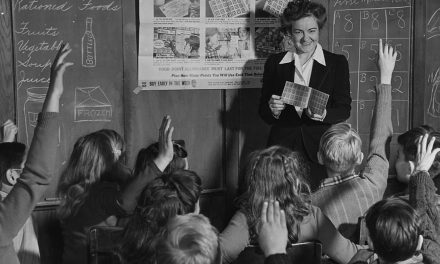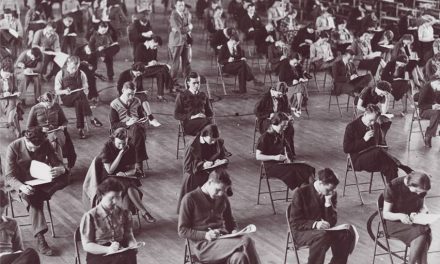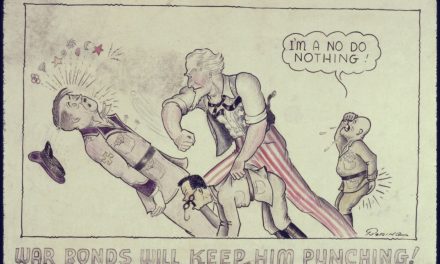In an attempt to strengthen his relationship with citizens, President Franklin D. Roosevelt will deliver three war radio talks in one week—scheduled for Aug. 31, Sept. 3, and Sept. 7. This week of speeches is unprecedented for a president in anything but an election year.
Roosevelt has used radio in the past to broadcast speeches to connect with Americans, known as fireside chats. He turns to this method of communication again to try to build trust with citizens.
The radio talks will include a speech commemorating the 100th anniversary of the founding of the Navy’s Bureau of Medicine and Surgery, an address to the assembly of the International Student Service, and an announcement regarding costs of living, wages and farms prices, and controls over taxes and spending.
The Director of the American Institute of Public Opinion, George Gallup, said Roosevelt’s popularity is at the lowest point since America entered the war, standing at 70 percent after dropping 8 percentage points since July.
Gallup said, “While he still holds the confidence and support of the overwhelming majority of his countrymen, nevertheless the percentage who approve the way Mr. Roosevelt is handling his job as war President has fallen considerably since last month, and is well below the level reached just after Pearl Harbor.”
According to Gallup, the institute’s 102nd monthly survey on the president’s popularity is a reflection “of a feeling of frustration on the part of a good many voters over the war effort—a feeling that the program has not been drastic enough at home or sufficiently aggressive abroad.”

Franklin D. Roosevelt campaigning while sitting in a car.
However, Roosevelt’s attention has recently been diverted away from the war due to other presidential duties. These responsibilities include examining hundreds of orders to either put acres of land into the public domain or take them off. The Budget Bureau, Justice and Interior Departments relieved Roosevelt from this responsibility, marking the first time in history the president didn’t have to bother with the orders.
The speeches present Roosevelt with the opportunity to connect with his publics as he reviews the economic, domestic, and military aspects of the war.
The president’s first address, on the Navy’s Bureau of Medicine and Surgery, will be dedicated to the new Navy Medical Center that will aid wounded soldiers in Bethesda, Md, and broadcasted to those abroad. The White House Secretary Stephen T. Early said that the White House is asking the Navy to arrange for doctors and nurses of the naval service, aboard ship or at naval stations around the world, to listen to the broadcast.
However, Early said that one of Roosevelt’s most important speeches—the second scheduled talk where he will speak to young generations of America. Early said that Roosevelt will speak to an assembly of students from all the Allied nations, with delegates from Russia, the Netherlands, and England, and Chinese students from within the United States.
“The President will speak through this assembly to the youth of the world—the United Nations and enemy too, if they can be reached—-emphasizing the duties and the opportunities of youth in these days of war and in the days of peace that shall follow,” Early said.
Roosevelt is additionally seeking to speak with Americans about their costs of living. He announced that federal action would be taken to stabilize wages and farm prices at their present level on Aug. 25.
This step is necessary, Roosevelt said, because the cost of living and threat that food prices could inflate as much as 30 percent is a “very serious matter affecting the lives of many people and interfering with the efficient conduct of the war.” Roosevelt added that it is not possible to stabilize wages without stabilizing farm prices, and vice versa.
Each of the radio talks will relate to wartime conditions and boosting morale on the American home front. The president’s action comes as the necessary answer to criticism and poll results that have shown he is losing his intimate connection with Americans during this time.
Roosevelt will reach a multitude of Americans through his broadcasts, to be carried on major radio networks and rebroadcast to the world in half a dozen languages.
Sources:
Gallup, George. “The Gallup poll.” The Washington Post, Sept. 02, 1942, p. 9.
Lawrence, W. H. “Roosevelt tells plan to stabilize wages, farm prices.” The New York Times, Aug. 26, 1942, p. 1.
“President to deliver 3 war talks in a week.” The Washington Post, Aug. 27, 1942, p. x1.
“Steps taken to free president of routine.” The Washington Post, Aug. 31, 1942, p. 1.




